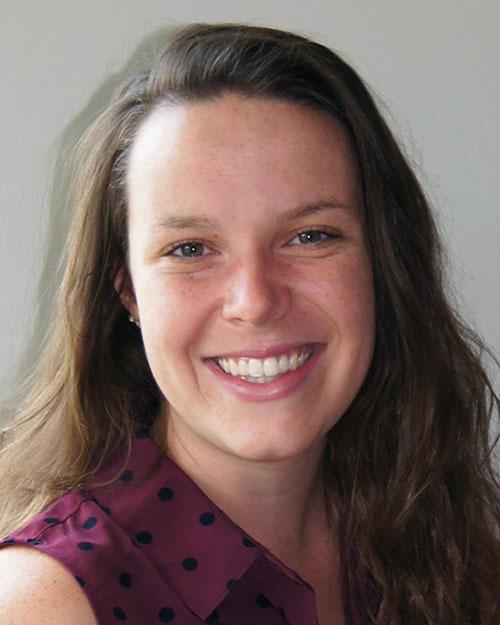Instructor Spotlight: Taylor Levesque

Tell us about your background and what inspired you to teach this course
My work focuses on play-based, developmentally-informed interventions to grow success for neurodivergent children and teens. Personally, one of my favorite skill-building environments is summer camp. I went to summer day camp my whole childhood, and I loved every second of it. I'm lucky enough now to run an intensive therapeutic summer camp program through my full-time job. So many people think of camp as "just fun"--it gives children a place to go during the day where they will be looked after while family members work. However, there's so much more to summer camp than fun. Summer camp is a transformative institution that supports our next generation of youth to build well-rounded skills beyond the academics they learn in school. These are the skills our next generation needs to succeed and make the world a better place. Only once summer camp is fully valued for all it brings to the table will we be able to reap the rewards of such a powerful learning opportunity; as Peg L. Smith, past CEO of the American Camp Association once said, “Give kids camp experiences that serve as the antidote for the world’s challenges.”
How has the idea of camp changed recently? Are there differences in the way different generations approach camp?
In the beginning, camp was an exclusive offering for middle and upper-class white males to get boys out of the city and into the healing presence of nature. Over time, camp has grown increasingly more inclusive, offering camp experiences for a wide variety of people through different content focuses and structures. Additionally, over time, people have grown more interested in exploring more than just the physical and health benefits of being outdoors; researchers have started paying attention to the mental, social-emotional, and personal development that emerges alongside summer camp participation. Lastly, a large trend across youth development contexts as a whole has been the interconnected nature of school and “out of school time” programs, including summer camp. Experts and caregivers alike are starting to understand the complementary value of a camp education in tandem with a school-based education (not in place of). As a result, professionals are beginning to collaborate cross-context to further leverage developmental gains in all settings, connecting teachers with camp counselors and caregivers with camp directors. I’m eager to see where this connection takes us in further supporting children to build skills that can generalize between places and spaces.
Summer camp is often portrayed in movies and TV shows. Do you have a favorite, or a least favorite, example of how popular culture portrays camp?
One of my favorite portrayals of summer camp is the Spirit in the Woods Camp from Meg Wolitzer's The Interestings; what I love most about this portrayal is the detailed focus given to building up summer camp as a shared experience that brings people from all different backgrounds and walks of life together. The Interestings tells the story of how six teenage friends meet at summer camp, but takes the story one step further to depict their growing and changing relationships as life goes on and summer ends, decades down the line. For so many of us, camp is a nostalgic institution that brings back memories of friendship, love, and belonging; Wolitzer paints these abstract sentiments in such vivid (and at times, heart-breaking) ways.
What do you hope that students will take away from your course?
Of course, I want my students to learn evidence-based information to support the importance of summer camp in youth development. I want them to practice soft skills including teamwork, communication, self-advocacy, and risk-taking. However, most importantly, I want students to leave this course feeling proud of and confident about their impact in this critical developmental space. It is my hope that after taking this course, students will understand all the good they’ve done for themselves, their campers, and their communities by working at summer camp and supporting its many merits. I hope students will leave this course feeling empowered to share this message with our larger world through dialogue, action, and mentorship. The case for camp needs to spread like wildfire; what better way to ignite that flame than these twenty Tufts undergraduate students?
What is something that you are looking forward to in your course later in the semester?
What I'm most excited for this Spring is the Camp Fair all students will participate in during our last class session. Beginning Week 1 of the course, students self-selected into interest-based camp committees, or small groups, for their semester-long project—topics range from camps for religious groups, sporting and equine-based camps, and a trade-based camp to build up vocational skills in teens. Each week, students will work in their teams to dream up different components of their ideal summer camp program, each one meant to meet the needs of today's diverse youth. Students will showcase their projects at a gallery-walk style event on May 1st where community members, Tufts students, and local camping professionals will come together and find hope in new directions for summer camp and positive youth development.
Taylor Levesque (A15, G17) serves as the Associate Program Manager for Child Services at MGH Aspire, an outpatient clinic through MassGeneral Brigham, where she designs interest-based, skill-building curricula to teach social skills and self-regulation to children and teens with Autism Spectrum Disorder (ASD). Taylor’s favorite season is summer, a time when she supports autistic campers and their staff to reach their full potential as the Camp Director for a 6-week, intensive therapeutic summer program. Taylor is a proud Double Jumbo, earning her Bachelor’s degree in Child Development and Psychology, and her Master’s in Applied Child Study and Human Development at Tufts.